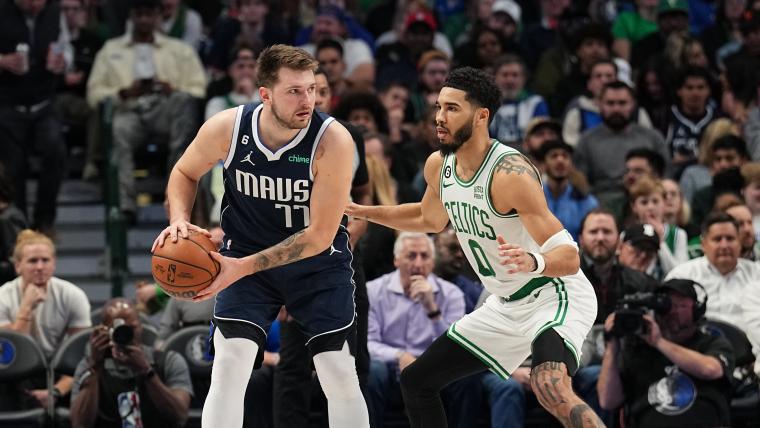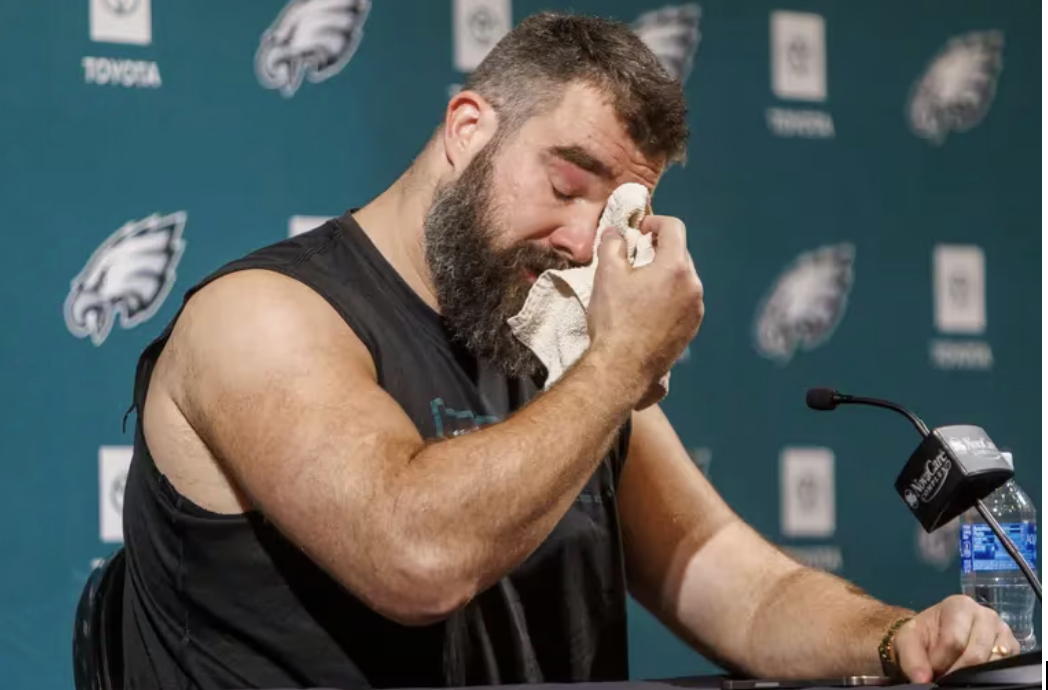Thursday nights at the Centennial High School gym are usually nothing out of the ordinary, with the fluorescent lights gleaming against the wooden floor as the air conditioner lazily hums; the room is still, unoccupied. However, on Thursday, Jan. 25, the energy within those four walls was palpable. It was the wrestling team’s senior night dual meet against Howard High School. Senior Fortune Teke was wrestling, and the importance of this match was lost on no one. If Teke could win against his opponent, Centennial would win the entire meet. For a team as small as Centennial’s, this would be an upset against Howard. As Teke and his opponent clashed against each other for six long minutes, the gym roared. The entire team was on their feet as each coach edged closer to the mat, screaming directions; meanwhile, fans in the stands shouted and clapped as they leaned forward in their seats. Amidst the chaos, one thing was undeniable: all eyes were on the mat.

(Jackson Palich)
Under Pressure
“It’s like you versus somebody else, and all the eyes are on you. It’s not like you can rely on somebody else to help you out like in football … or lacrosse,” says senior William Kim, who is in his second season of wrestling.
It’s a pressure that is entirely unique, given that wrestling is the only high school combat sport; the mental aspect of the sport is just as difficult and crucial as the physical aspect. “Sometimes the pressure’s a lot, but, I mean, it’s really how you look at it,” says junior and co-captain Will Schmitt, who has been wrestling since middle school. “Some people, it shuts you down when you get nervous and that’s bad. For me … I use it to amp me up and get me more excited for my match, so it’s kind of a good thing in that way.”
Each wrestler has their own unique method of coping with the pressure that the sport brings. “Pre-match routines are a big thing,” junior and co-captain Matt Sedor notes. “I like to listen to music just to kind of get me in the zone, because it’s a lot different than other sports with having to be locked in. I kind of visualize more, visualize what moves I’m gonna do, visualize how I’m gonna be winning the match, visualize myself just winning.”
However, not every match is a success. Sometimes, the mental aspect of the game gets the best of the wrestler. During a dual meet against Atholton on Jan. 4, Sedor was in the lead nearly the entire match until he experienced a mental slip. “Third period, I am tired, the other guy is tired, I’m thinking to myself, ‘Well, I got this easy,’ and that’s where it slipped … I was like … ‘I’m beating this guy, I’m gonna win …’ It just kinda spiraled and he flipped me,” he recalls.
In moments like those, the only person the wrestler can blame for the loss is themselves. Kim, who also plays football and lacrosse, often finds himself ruminating about his performance. “After you lose, you tend to just think about all the things you could’ve done better … certain instances where the opportunity was there but you didn’t take it. It’s all on you, it’s definitely hard on you mentally ‘cause … you’re just blaming yourself,” he says.
On the other hand, Schmitt, who also plays baseball, appreciates the fact that the match is a direct reflection of his own performance. “There’s less blaming. Like, in baseball, if we lose, maybe I’ll make an error, but then I could be like, ‘Oh, he also made an error, so it’s not my fault!’” he states. “But wrestling … you don’t really have anyone else to blame. So it’s kinda good. It holds you accountable. And you can complain about it or you can use it as, ‘Okay, all the eyes are on me. This is up to me.’”

(Jackson Palich)
Female Wrestlers Gear Up
One reason eyes have been on Centennial this season is the addition of girls to the team. While two girls have wrestled in the past (in the 2013-14 and 2016-17 seasons), junior Rei Vlahov and freshman Miah Morrison are making history as the first girls on Centennial’s team to wrestle in a varsity match.
“I know a lot of people look at girl wrestlers and they’re like, ‘Oh, they’re not as good as guys, so they’re not that good,’ … we’re not that good compared to guys because we’re not built the same way, but girls going on girls I feel like is just as valid as guys going on guys wrestling,” Vlahov notes.
“Both the girls and boys experience the same level of practice as long as they are working as hard as they can,” Morrison emphasizes. “However, I have sometimes felt like they may think I’m more likely to react differently and not perform as well as the guys at some times.”
Regardless, she is determined to never give up while wrestling. “I have felt a lot of emotions throughout the course of the season, but I know it’s worse to quit or give up … I’d rather fail something and work on it than quit a sport entirely.”
Vlahov was a manager for the team last year and has participated in jiu-jitsu in the past, so she felt she had a good basis to begin the sport. She admits that she was a bit nervous about living up to the coaches’ expectations going into the season and was worried about how they would react to her performance as a girl. “I don’t want them to just feel like they’re wasting their time or something.”
She has always been one for trying new things, though, and has found that wrestling was very similar to other team sports. “They’re just … guys, it’s not like there’s any drama going on or anything … I’m there to wrestle and they’re there to wrestle and it’s just like we’re there working out and there’s nothing really much to it than just doing that,” she says.
Schmitt feels similarly, and is excited that Centennial will be represented in female brackets. “I just look at them as another wrestler. It’s good, actually, ‘cause there’s girls’ states and girls’ regionals, so that’s good that we’re gonna have competitors out there,” he points out.

(Jackson Palich)
Cutting Weight
Not only is wrestling unique because of its combative nature, but it is also the only high school sport in which athletes are required to pay close attention to their weight — a fact that concerns many people outside of the sport.
“I think people who don’t wrestle … they kind of overdramatize what they think cutting weight is like,” says Schmitt.
To make the matches fair, wrestling is divided into weight classes that move up every six to seven pounds. Wrestlers can be under the weight class they wrestle, but they are not allowed to be over that weight, requiring some of them to cut weight prior to matches.
“It’s not an eating disorder,” Sedor states. “We’re not just not eating, we know when to eat is the main thing.”
Schmitt, who wrestles in the 167 weight class, naturally weighs about 170 pounds. Over the years, he’s learned how and when to cut weight in a way that works for him. In addition to eating a little bit less the night before a match, he notes that he also loses weight by sleeping and working out at practice. Sedor personally does not eat the night before or morning of the match until he weighs in. Once he does weigh in, which means his weight is recorded in order to be eligible to wrestle in his match, he is allowed to eat as much as he wants. It should also be noted that after Christmas, all wrestlers are allowed an extra two pounds.
The fact that wrestlers move about weight classes and thus cut and gain weight can be strategic. For example, Vlahov cuts down a weight class in order to wrestle against more evenly matched opponents; otherwise, she would have to go against someone who could be four to five pounds heavier than her, thus giving them an unequal advantage and in turn costing Centennial team points. In terms of cutting to get to these weight classes, though, each wrestler has learned how their body responds to sleeping, practice and eating and can adjust accordingly.

(Jackson Palich)
Respect Becomes the Name of the Game
Aside from the intricacies of cutting weight, respect is another huge aspect of wrestling. After each match, regardless of the outcome, wrestlers must shake the hands of their opponent and the opposing coach. In some cases, wrestlers think of this as an extension of the match. Something that the coaches emphasize to the wrestlers is to have unconditional respect for the opponent, even if, and perhaps especially when, they lose.
“Coach Tommy says, ‘Don’t give them the second victory of knowing … they really just beat you,’” says Sedor. “If I lost and I got up … and I’m not looking at him and it’s a bad handshake … they’re gonna be like, ‘Yeah, we really killed this guy. He doesn’t wanna wrestle me again, he doesn’t think he’s gonna win.’”

(Jackson Palich)
However, if a wrestler can swallow their pride, look their opponent in the eye, and shake their hand, it sends a message: “The main thing is showing, even if you lose, ‘I’m comin’ back for you, I’m gonna beat you,’” Sedor stresses.
Kim feels similarly, adding, “I don’t really have any hatred towards my opponents if they beat me, it’s just ‘cause … I didn’t wrestle my best or they wrestled better than me.”

(Jackson Palich)
On the girls’ end of things, the respect is sometimes one-sided. While Vlahov says most of her opponents are respectful, she does notice that “there’s some guys who … they’re like, ‘Aw, I have to wrestle a girl,’ and they end up pinning me or something … just the way they carry themselves it kinda gives a little bit cocky and it kinda bugs me a little bit, but I just have to put on a face and shake their hand.”
It’s demoralizing to lose an individual match, but a particular challenge to Centennial’s team is losing dual meets to forfeits. Centennial does not have enough people to fill every weight class, forcing them to give up those matches, which automatically gives the other team six points. While the team has strength in many experienced wrestlers, including two-time state champion, co-captain and junior Calvin Kraisser, there have been many new faces to the team compared to a large number of key seniors who graduated last year; starting with fundamentals and going a bit slower through drills has been an adjustment the team has had to make.

(Jackson Palich)
As much as wrestling is an individual sport, the bond that Centennial’s team has created is evident. As the clock ticked down during Teke’s match, the team looked on with heightened anticipation and cautious optimism that they could win the meet against Howard. The match came down to the last few seconds. Five … four … three … two … one. As the buzzer blared, the gym erupted. The wrestlers leaped into the air, yelling and clapping along with the packed section of fans. Schmitt and Sedor pulled each other into a hug, jumping up and down excitedly as Teke was embraced by his teammates. The excitement seemed to send a message: the exhausting practices, mental slips, defeating losses and literal blood, sweat and tears that the team had put into the season were all worth it in this moment. All eyes were on the mat.

(Jackson Palich)
tk/nc/jy/yl/hk/ew
For more breaking news and photos, follow The Wingspan on Instagram and Twitter @CHSWingspan.





